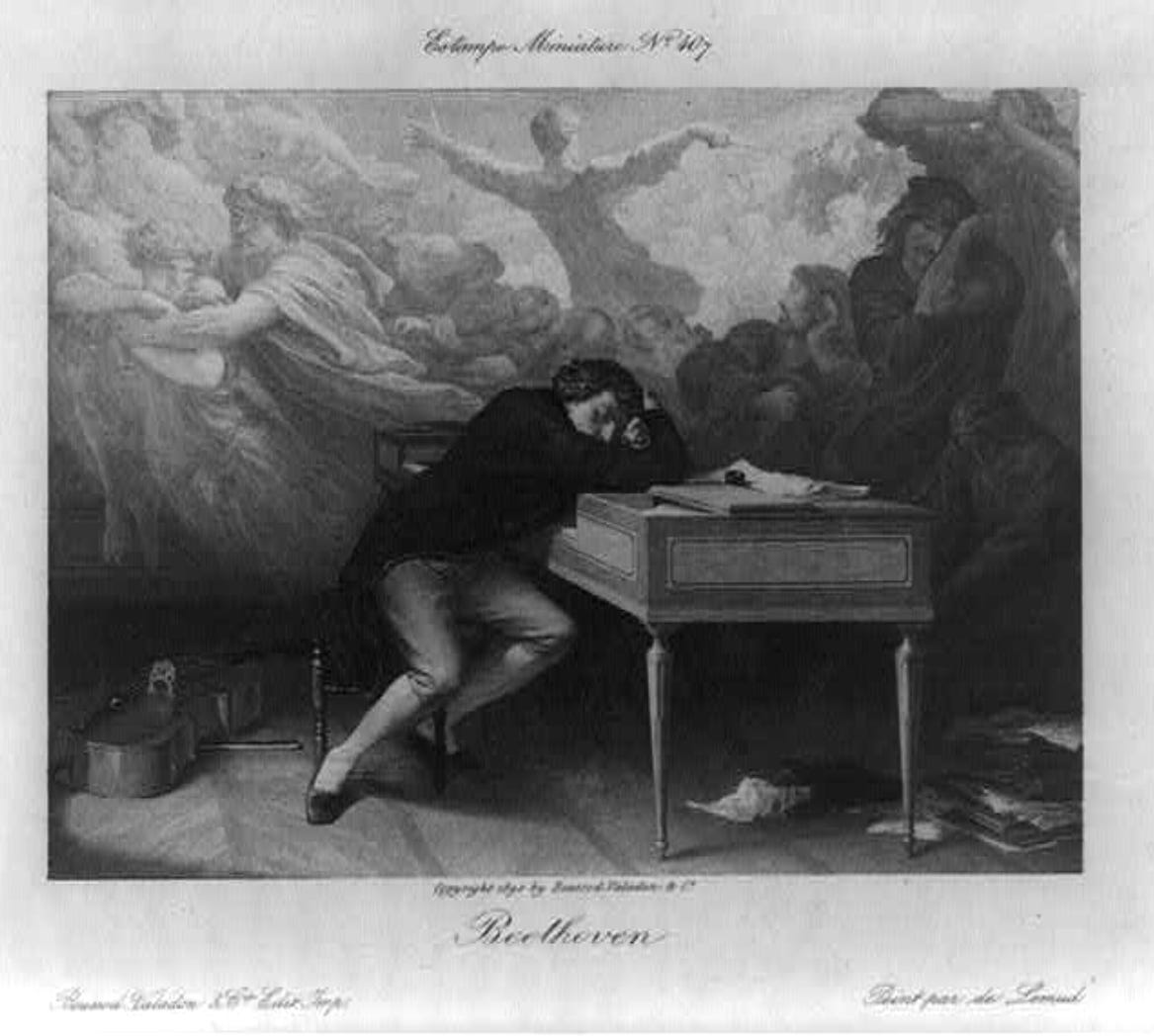Now and Then Humans are AOK
Let heroes lift our sights – from the muck of now to the marvel of always
“All my life I’ve compared myself to Christ.” – Samuel Beckett
I’m a hero worshipper. Like the poet Stephen Spender,
I think continually of those who were truly great.
Who, from the womb, remembered the soul’s history
Through corridors of light, where the hours are suns,
Endless and singing. Whose lovely ambition
Was that their lips, still touched with fire,
Should tell of the Spirit, clothed from head to foot in song.
I idolize the sublime achievers in the realms I revel in.
Thomas Carlyle, who coined the phrase hero-worship and preached its practice, sorted heroes into six types: Divinity, Prophet, Poet, Priest, Man of Letters, and King. He argued that men – and only men, alas – made their times and not vice versa, and their example should lift us from the mire of mediocrity. While we may gag on Carlyle’s florid prose, his enthusiasm feels a welcome antidote to modernity’s cynicism. The hero, he wrote,
Is the living light-fountain, which it is good and pleasant to be near. The light which enlightens, which has enlightened the darkness of the world; and this not as a kindled lamp only, but rather as a natural luminary shining by the gift of Heaven; a flowing light-fountain, as I say, of native original insight, of manhood and heroic nobleness; -- in whose radiance all souls feel that it is well with them. On any terms whatsoever, you will not grudge to wander in such neighborhood for a while.
Hero-worship is a fervor akin to love. While conceding that the makers I admire were human, often all too human, I revere them as quasi-divine. Their example inspires.
For more than a month, I’ve been marinating in Beethoven. For any lover of the music we call classical, Beethoven has been an intimate almost since infancy. His music plays in our head. We know him, yet we don’t. His insight and innovations feel inexhaustible. How did a human conceive such sounds, so unlike any heard before, so vivid centuries after?
My guide for this journey has been Jan Swafford, my favorite biographer of composers. Telling a musician’s story is an unforgiving assignment. Either you tilt toward threadbare adjectives – sweet, grand, wistful, lively, etc. – which say little – or toward technical analyses dry to the knowledgeable and bewildering to non-experts. The lecture with musical examples may be the ideal medium for musical biography but who has a hundred hours to spare? The Internet helps. I can magically summon from my smartphone any piece Swafford cites and follow along.
Beethoven was a hot mess of a human being. Ugly, angry, cantankerous, increasingly deaf from midlife on, afflicted with eruptive digestion, slovenly, sneaky, a loser in love, his stench wafts across three centuries. And yet… the music! Ceaselessly inventive, exploratory, uplifting (I’m falling into the adjective bog), again and again we marvel slack-jawed, “How on earth!”
Arguably his most haunting music is that which he composed after he could no longer hear: the Missa Solemnis, Ninth Symphony and what are referred to as the late piano sonatas and string quartets. However familiar, these still sound weird, other-worldly, unlike music before or since. They startle, unsettle, resist comprehension yet mysteriously enthrall.
These are grim times on earth. Headlines are headaches; humanity appalls. Then heroes lift my sights – from the muck of now to the marvel of always; from selfishness to sharing, actuality to possibility, horror to hope. That mere humans made such music means we might again. However improbable, beauty, truth, goodness, glory are conceivable. That is the encouragement we imbibe from souls like Beethoven: we can be so much more than we are.





Your words bring up the question: If we CAN be so much more than we are, why Don't we do so?
Heroes are fantasticies, not reality. Why should a slovernly music composer be held in higher esteem than the patient Philippine caretaker in a nursing home? We won't do better until our priorities move from our heads to our hearts. (No easy task that...)